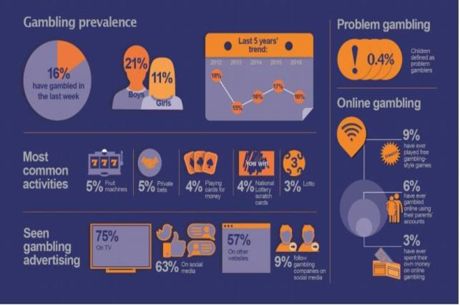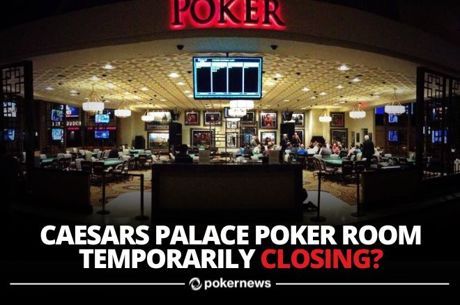Inside Gaming: Caesars Unit's Bankruptcy Exit Plan in Doubt After Lenders Withdraw Support

This week's installment of Inside Gaming shares a recent development affecting Caesars' plans to get its largest operating unit out of bankruptcy, tells of turmoil in Argentina concerning the country's gaming industry, and follows up on the grand opening of Maryland's sixth casino.
Bank Lenders Now Objecting to Caesars Unit's Bankruptcy Plan
Six weeks ago we were reporting in this space how Caesars Entertainment Operation Co. �� the largest operating division of Caesars Entertainment Corp. �� had finally reached an agreement with one last holdout creditor. That meant creditors would be halting their lawsuits against the company, allowing CEOC to proceed with a reorganization plan to help facilitate an exit from bankruptcy.
Today the story has changed. The news this week is that bank lenders are now threatening to walk away from a deal, which could send the reorganization plan "into disarray" reports Reuters.
While the bank lenders had previously been prepared to back the plan, "their support depends on documentation that ensures the market value of the non-cash consideration they are set to receive under the plan," and without that documentation the committee of bank lenders would be withdrawing their support of the plan.
"Simply put, without the consent of the bank lenders, the plan completely unravels," said the committee's lawyer, Kristopher Hansen, in a recent court filing.
In 2014, Caesars Entertainment Corp. restructured into three separate divisions, the largest and most debt-ridden being CEOC which includes more than 40 properties, a move described at the time as having been made in order to avoid having to file for bankruptcy. However in January 2015 CEOC did file Chapter 11 bankruptcy, with creditors subsequently filing lawsuits alleging the previous restructuring had unfairly limited Caesars' obligation once the bankruptcy filing was executed.
In July 2015, U.S. Bankruptcy Judge Benjamin Goldgar responded to Caesars' attempts to halt the lawsuits by ruling the company would have to face them from numerous creditors. But over a year's worth of negotiations finally resulted in terms being reached between Caesars and its creditors �� including (finally) Trilogy Capital Management �� and it appeared CEOC's plan to exit bankruptcy would be moving forward.
That plan involves the unit dividing "into a real estate investment trust controlled by lenders and a separate operating company that will form part of a new restructured Caesars controlled by creditors." But while the creditors are on board, the lenders presently are not.
According to Hansen, "the lenders would inform the court on the status of a deal by Dec. 14." Meanwhile a confirmation trial to being the restructuring process scheduled to begin January 17 is now in doubt, and would have to be postponed if the lenders refuse their support. Caesars had previously hoped to have that confirmation trial already well underway, but the protracted negotiations with creditors pushed it back to the new year.
See Reuters for more on the bank lenders' position and what might happen next.
Argentina's Gaming Industry Responds to Proposed Tax Increase with Massive Strike
Roughly a quarter million workers across Argentina went on strike Tuesday to protest plans to increase taxes on the gaming industry, abruptly halting the action at casinos, racetracks, bingo halls, and lottery agencies across the country.
According to G3 Newswire, the Union of Gaming Workers, the Association of Racetrack and Betting Agency Personnel, and the Union of Workers in the Gastronomic Sector all joined the protest. They are responding to the plans set forth by the Cambiemos Party and President Mauricio Macri to increase taxes on the gaming industry.
"The government aims to raise $6bn pesos in additional funding via tax on the gaming industry... [by] impos[ing] a fixed tax of $40,000 pesos on the 80,000 slot machines operating in the country and charge 0.75 percent on wagers via an indirect tax," reports G3 Newswire.
The government of the province of Buenos Aires is also reportedly looking into increasing taxes on bingo halls' gross gaming revenue from 12 percent to 14 percent, with the province's Governor Maria Eugenia Vidal believed to be in support of the plan.
The Union of Gaming Workers' Secretary Ariel Fassione underscored how increased taxes on the industry would greatly threaten job security for many.
"If the initiatives that speak of imposing a tax on bets and a payment for each slot machine go forward, companies will be on the brink of bankruptcy and thousands of workers will lose their jobs," said Fassione.
A similar statement from the Argentine Chambers of Casinos and Bingos and Annexes "warned that as many as 20,000 jobs are at risk."
Learn more about the proposed taxes and the strike from G3 Newswire.
MGM National Harbor Passes Final Tests, Enjoys Big Grand Opening
Finally, just a quick follow-up on last week's report on the opening of the brand new $1.4 billion MGM National Harbor on the eastern shore of the Potomac River in Prince George's County in Maryland, the sixth casino in the state.
We noted last week how "controlled demonstration" tests by the Maryland Lottery and Gaming Control Agency had to be conducted to ensure the integrity of the more than 3,300 slot machines and 165 table games in casino, as well as other elements of the casino.
Such tests were conducted and passed, and yesterday the casino enjoyed its grand opening "with Vegas-style glitz" reports The Baltimore Sun. Governor Larry Hogan was among those in attendance for the opening along with around 30,000 others.
Performances by the hip-hop group Jabbawockeez and Cirque du Soleil entertained those who were there, with actress Sarah Jessica Parker also on hand to introduce her boutique. Among those performing in the 3,000-seat theater in the casino's opening months are Sting, Boyz II Men, Bruno Mars, Cher, and comedian Jim Gaffigan.
For more on the big opening, visit The Baltimore Sun.
Photo: "Caesars Palace" (adapted), Craig Lloyd, CC BY 2.0.









